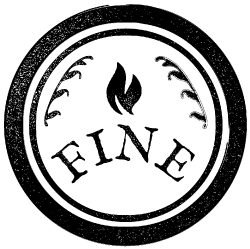 Thanks for all of the kind comments on the previous post. They really helped balance the freaking out I had to do when a kind well-meaning soul posted this link as an example of a REALLY GOOD children’s website.
Thanks for all of the kind comments on the previous post. They really helped balance the freaking out I had to do when a kind well-meaning soul posted this link as an example of a REALLY GOOD children’s website.
Ok. Let’s go through this again. Slowly. This time I’m going to spell it out.
Anyone can make a website. The web is the most democratic publishing forum ever conceived. But, unfortunately, just because you can do something doesn’t mean you are the best person to do it. It is an unpleasant fact that most library websites, most digital libraries, most catalogs and electronic collections are badly designed.
And by badly designed, I mean this. Ugly. Ill-conceived. Verbose. Inaccessible. Acronym rich. Confusing. Lofty. Unnecessarily complex. Deprecated. Self-absorbed. Low-quality. Pointless. Patronizing.
Are you still with me? Remember, I’m being a bitch so that you don’t have to.
There is a tendency in the library community to blow sunshine up each other’s asses, as though our intent to do good were enough. As though our good works shouldn’t be held to the same standards as commercial products because we are Nice. People don’t seem to criticize each other’s work in this profession. Which makes for a perfectly lovely working environment where you can find yourself producing piles of junk because all you have heard is happytalk from supportive colleagues. And that’s not Nice. Nope. Not at all. That’s painful and embarrassing and rather cruel.
You would tell a friend if she had toilet paper on her shoe, right? Gentle criticism (not my specialty, obviously) has a place in any relationship, especially when the stakes are high. When your TP-shoed friend is about to go up on stage in front of a bunch of elementary school kids, they probably aren’t going to listen to her charming and educational speech. They are going to see the toilet paper and turn into a pack of hyenas.
And it’s a shame, because the Internet Children’s Digital Library (and the gajillion sites like it with smaller budgets) have the potential to become popular resources if they will only make the connection between quality of content and quality of interface. Like so many digital collections, they have great ideas, like sorting books by color, but they don’t have the skill or the perspective to realize these ideas. And they don’t have the humility to hire someone who does. So up they go in front of the auditorium with a big wad of TP dragging behind them.




http://www.scottsdalelibrary.org
Well done!
My homepage | Please visit
Thank you!
[url=http://qloxamqm.com/wivn/akmt.html]My homepage[/url] | [url=http://flmlaoym.com/nysi/sxll.html]Cool site[/url]
Erica – Excessive consumption of eggs can clog the brain and lead to the use of terms such as ‘dude’. Notable egg eaters: Beavis, Butthead, and Bush. Of course, when Bush uses ‘dude’, he talking about his ranch.
http://politicalhumor.about.com/library/multimedia/bushblair_endlesslove.mov
1996 called, dude. They want their website back.
Greetings – The page that you link to calling it a ‘catalog’ is not. It is merely a group of links to various children’s websites. And, I noticed that many of the links no longer work – it does need some updating.
The paging system is set up with no ads and basically uses a grid system. Using the grid, you can get anywhere very fast.
R Balliot
I stumbled on your blog when I was searching for something else, and I have to say that it has made for some fantastic reading. Funny, insightful, interesting.
I second the other comments already posted here — am glad you had the guts to say what many of us wish we could say. Woo hoo!
There’s a book out there that might be of use to you all. It’s called Usability Testing for Library Web Sites: A Hands-On Guide by Elaina Norlin and CM! Winters. May be useful to beginners when first planning a site — stresses the importance of having at least a couple non-librarians look at your site before you finalize the design.
Best of luck to you all.
“There is a tendency in the library community to blow sunshine up each other’s asses, as though our intent to do good were enough. As though our good works shouldn’t be held to the same standards as commercial products because we are Nice. …. And that’s not Nice. Nope. Not at all. That’s painful and embarrassing and rather cruel.
Be careful! You almost suggested that good intentions aren’t enough! Or perhaps that having good intentions does NOT give you a pass for having lousy results!
You’re starting to sound like a conservative!
I am a part-time LIS student, but also work as a user experience designer for a web development agency. Have to agree with you totally. I am currently writing a term paper on digital library interface design, which is why I stumbled across your site (no – not doing my paper all based on Google searches, thank you :-). Thanks for the brave, but quite necessary comments.
Also, check out http://www.library.rochester.edu/
Not a digital library per se (not all searches end in a tangible, digital result), but they are on the right track from an information architecture standpoint. What I like most is the simplicity. You are not presented with a laundry list of databases. Check out course resources & reserves — imagine that, finding information according to your course, instructor or department! If only I had something like this during my undergrad days…
Check out the UCLA library site – very elegant.
Check out the UCLA library site – very elegant.
Our current webpage was put together by committee, and by people who used logic to reason out what user behavior should be instead of actually observing users. It’s organized into categories and departments that make sense to librarians but not to students or faculty, and it spawns popups all over the damn place. Not to mention we’re a higher-education academic library that prides itself on being on the cutting edge of technology, and our webpage features bad clip art.
My position is a recent creation and the primary function is to update and maintain the webpage. I’ve managed to get them to agree to let me run a couple of focus groups on how our users actually use the webpage, and I shall be thoroughly redesigning the page this year. There’s still a web design committee, but I’ve already thought about how I’m going to do end-runs around the committee mentality.
Well, what do you expect? A lot of library websites are designed by committee, and getting a big group to agree on something like a website is super difficult. Not to mention that very few librarians have nothing in their job descriptions besides maintaining the library’s website. I think a lot of library sites suck too, but I don’t see a way to solve this problem effectively.
I’ll second the request for examples of good kids sites, particularly those that are library (or information-retrieval) related.
Yahooligans, yay or nay?
How about KidsClick, which is by librarians?
Your comments so far have been superb; inquiring minds want to know!
Could you please find some kids websites that would illustrate what you feel is good design?
Preferably an informational website.
-Tamarack
ps: the above link was not meant so much as a good example of web design, I was expressing that I look at it and think well, that’s pretty standard… It’s doesn’t seem awful to me; just average (ie:common).
Please, Erica, enlighten us a little! ;)
Oh my God. I think I’m in love.
I wish you could come bitch slap our librarians until they got a clue.
How about more than one example of a well-designed library site?
I find it endlessly depressing that so many librarians have absolutely no clue about how to organize information efficiently and intuitively. It makes me weep for the future of libraries. What are they teaching in library school if not that?
I personally don’t care too much if a website isn’t super pretty, but you gotta live by the 20 second rule. If a reasonably intelligent adult can’t find a link to your OPAC, your news page, your contact page, or a list of library locations in less than 20 seconds each, you should consider the website broken.
Hear you on this one. I do web work for a county, within the library but not employed by the library (they are like a client – huge grey area). I’m supposed to redesign the entire county web space, of which the library system is a major part – yet I cannot touch the library site because somehow it is the turf of the cataloguing guy (even though I maintain all the other sites on the web space). So my actually re-doing the “entire” site bit is, well, theoretical at best.
Needless to say, this library site that the Politics of Pettiness (you know, the overarching rule of the library world) have determined I not touch is Bloody Awful. Furthermore it will look Even More Bloody Awful when the rest of the web, including all other county sites, is rebuilt to include things like accessibility standards, a colour scheme not inspired by massive drug use, and most importantly Proper Use Of White Space.
So what will be the end effect is that my making the county look better will wind up making the library look worse. So I benefit my official employer by screwing over their most important department (and my most important client) out of whose office I happen to work.
So how was your week?
Having a background in graphic design does not ensure good design, maybe only lots of graphics and flash. Graphic folks like good looking pictures, never mind if they provide any content or information, they look good. If folks would only take a few pointers from Jacob Neilson or even run their site through Bobby it would be an improvement.
Thanks for continuing to hold our feet to the fire. Being nice is no excuse for bad design. I mean, you’d think that by 2005 we would have stumbled across a clue. The fact that so many of us haven’t is, well, depressing. Anyway, I appreciate your spirited, interesting, and articulate postings. Keep it up!
I agree that libraries need to take care when developing their web pages. I have seen too many pages where they wanted to include EVERYTHING on the home page and end up with a completely unreadable mess. I work at a large university library and I tend to think that on some levels it equals “too many cooks in the kitchen.”
–Jane, thinks a librarian using Google should be able to find some useful guidelines
I (heart) you! Rock on, sistah!
your “Contact” link isn’t working and i want to ask you to critique our library’s website. i feel the same way you do, but while i am the library’s webmaster, i am a librarian, not a graphic designer. i want to know what you think.
Hi,
Can you cite any examples of good library website design?
I’ll admit it–I’m a hack. I was sent to some Frontpage classes to get our library site up and running, and I do the best I can with what I have to work with. But I’m also an artist in my non-library hours and very interested in integrating what I know and feel into what needs to be on the site.
Kateri
I couldn’t agree more–I’m in an MLS program right now and am disheartened by the sorry state of library websites, interfaces, etc., and the lack, so far, of any type of required courses in introductory web design or basic HTML as part of the curriculum (thank god I’ve already got some experience in it!). I raised this question on a message board in my current class, and one response was that because libraries are so short of money, one shouldn’t hold them to the same standards as for-profit businesses. But I don’t think that’s a valid excuse. Just reading a web design book will help improve the accessibility of a homegrown site, at the very, very least. Or teach yourself enough to recognize good design when you see it so you can work with the people who are building your site, if it isn’t your own staff. How about professional organizations offering free web design or web usability seminars? (The ALA should probably take these too, since their website is pretty atrocious.)
And for a profession that claims to provide access to knowledge, I still can’t understand the constant use of acronyms and insider terms that patrons should in no way, shape, or form have to attempt to decipher in order to find or use a catalog or library website or, for that matter, the library itself.
It sure is an interesting time to be studying library science, that’s for sure.
Rock. The hell. On.